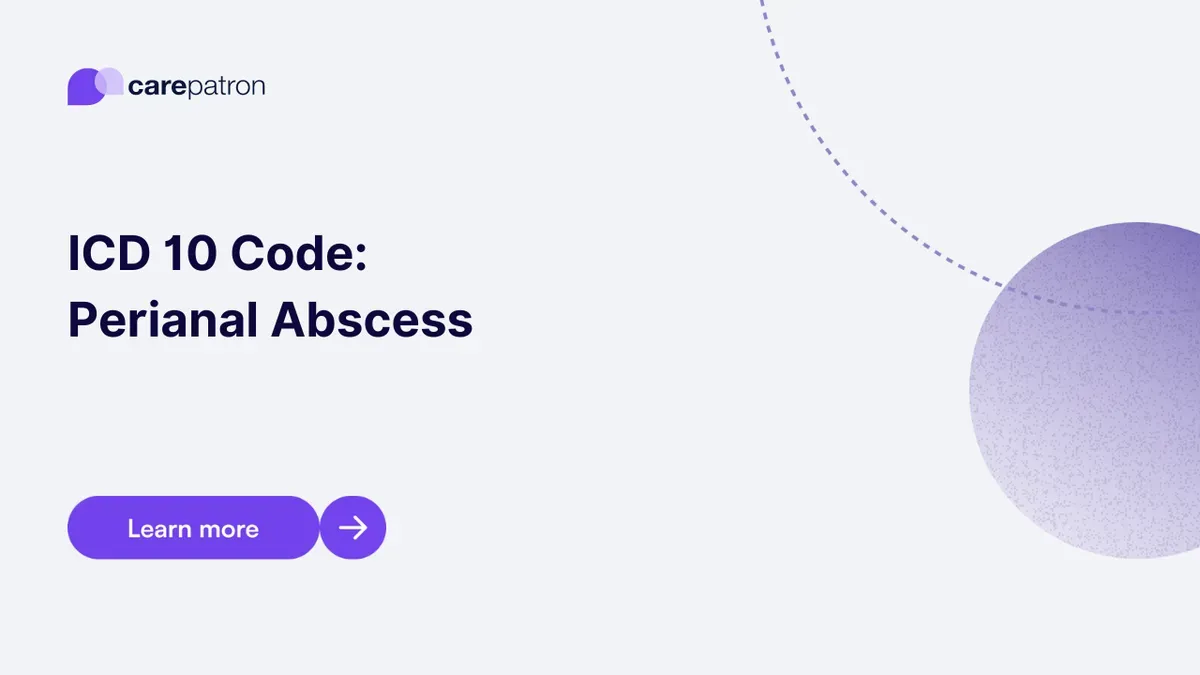
Perianal Abscess ICD-10-CM Codes
Explore ICD-10-CM codes for perianal abscess in 2023. Learn about common codes, billable statuses, and gain clinical insights in this comprehensive guide.
Use Code
Commonly asked questions
Perianal abscesses are typically caused by an infection in the small anal glands. Bacteria can enter these glands, leading to inflammation, pus formation, and abscess development.
Treatment involves draining the abscess through a small incision to relieve pain and remove the pus. Antibiotics may be prescribed if there is an associated infection.
Yes, perianal abscesses can recur. Recurrence may be prevented by addressing underlying conditions, such as anal fistulas or other factors contributing to infection. Proper hygiene and follow-up care are essential.
EHR and practice management software
Get started for free
*No credit card required
Free
$0/usd
Unlimited clients
Telehealth
1GB of storage
Client portal text
Automated billing and online payments
